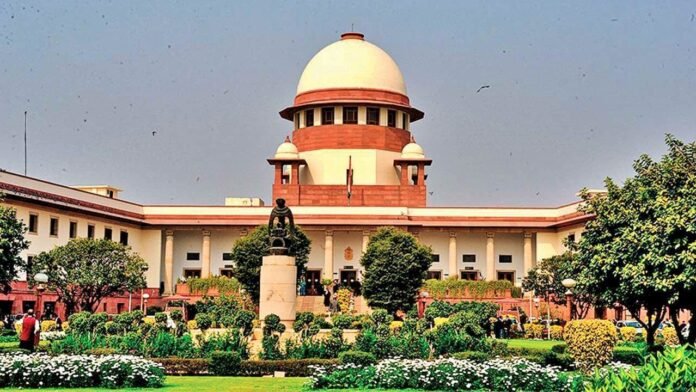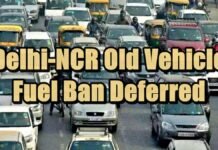
Key Points
- Delhi government has approached the Supreme Court to reconsider the age-based ban on diesel and petrol vehicles in Delhi-NCR.
- Petition calls for a comprehensive scientific study to assess whether banning vehicles solely on age significantly improves air quality.
- Government argues for a shift to emissions-based regulations, noting that many newer, well-maintained vehicles (especially BS6) are cleaner than allowed older vehicles.
- Ban is said to disproportionately affect middle and lower-middle class families—as well as second-hand vehicle owners.
- Supreme Court to hear case July 28; a decision could impact millions of vehicle owners across the Capital region.
New Delhi: Delhi government has filed a landmark petition with the Supreme Court demanding a review of the blanket ban on diesel vehicles over 10 years and petrol vehicles over 15 years in the Delhi-NCR region. Arguing that the policy is outdated and unfair, the government is pressing for a scientifically-backed, emissions-based approach one that would replace blunt age restrictions with pollution checks and fitness requirements for all vehicles.
Push for Data-Driven Policy
The plea points out that the original 2018 order, later enforced by the Centre and the Commission for Air Quality Management (CAQM), was not supported by comprehensive scientific evidence or impact studies. The Delhi government is urging the Supreme Court to direct a national-level study evaluating the true environmental benefits of blanket vehicle bans and to determine if targeting actual polluters isn’t a more effective way to clean Delhi’s air.
Impact on Middle Class and Second-Hand Car Market
The government’s application highlights the social and economic impact of the current ban, noting that it is a severe blow to middle-class families and the second-hand vehicle market. Many of these vehicles, government argues, are well-maintained, comply with fitness norms and drive far fewer kilometers annually, meaning their actual contribution to pollution is negligible. The loss of usable, compliant vehicles from the roads is also shrinking the availability of affordable transport options for lower-income groups.
New Era: BS6 Vehicles Are Much Cleaner
Since the introduction of BS6 (Bharat Stage VI) emission norms in April 2020, new vehicles are required to emit drastically less particulate matter and nitrogen oxides than previous generations. For example, a BS6 diesel vehicle emits about 80% less nitrogen oxides and nearly 85% less particulate matter compared to a BS4 diesel vehicle making them some of the cleanest cars on Indian roads.
As the Delhi government’s plea points out, these cleaner vehicles are now threatened by the age-based rule, despite being fully compliant with the latest emissions standards. The application demands a shift towards fitness and emissions testing, which would ensure that only the truly polluting vehicles regardless of age are kept off the roads.
International Best Practices & What’s Next
The Delhi government notes that major global cities do not impose broad age bans on vehicles, instead focusing on regular emissions and fitness testing. The Supreme Court is set to hear the case on July 28. The decision will be watched closely not just in Delhi, but across India as it could set a precedent for balancing air quality goals with economic realities and technological advances.
The outcome may fundamentally reshape vehicle regulations in the nation’s capital, with millions of families and businesses awaiting clarity on whether science, rather than blanket rules, will steer Delhi’s environment policy into the future.
















































